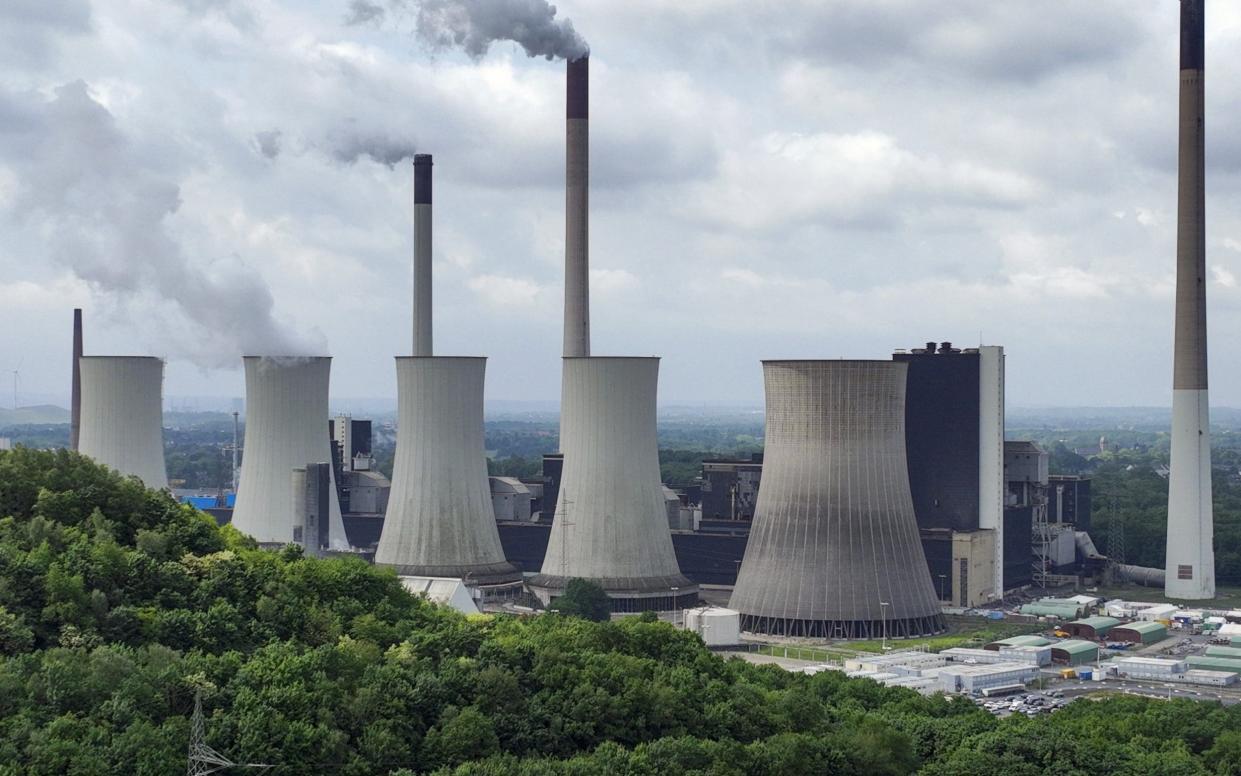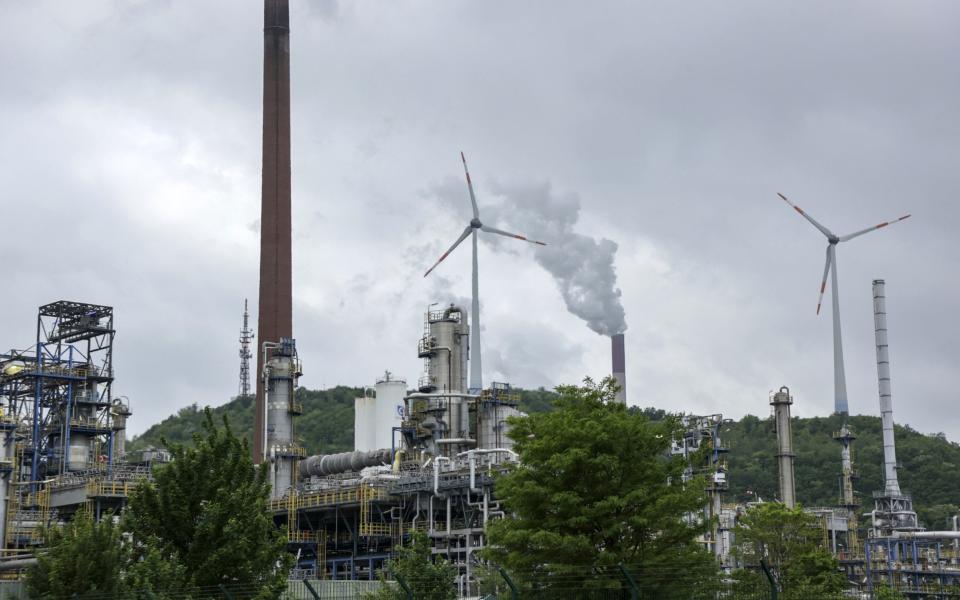Germany to reopen idled coal plants if Russia cuts gas supply

Berlin will bring back coal and oil-fired power plants it closed to hit climate change targets to prevent shortages if Russia cuts off gas supplies to Germany.
German industries, the backbone of Europe’s largest economy, would be forced to shut down within weeks if Vladimir Putin turned off the taps.
The United States and European Commission on Tuesday condemned Russia’s use of “energy blackmail” after Moscow shut off supplies to Poland and Bulgaria.
More than half of Germany’s gas imports come from Russia, which helps fund Moscow’s war machine in Ukraine.
Berlin would have to turn to more polluting fossil fuels instead and put its hopes of cutting greenhouse gas emissions by 65 per cent by 2030 at risk.
Economy Minister Robert Habeck prepared the emergency plans to fire up a maximum of 26 mothballed stations for up to six months to stop blackouts in a country which has banned nuclear power.

A threat from the Russian president would trigger the emergency plan and allow the coal plants to be reopened without parliamentary permission. Berlin planned to close much of its national reserve of six gigawatts of coal facilities as part of its coal phase out.
Mr Habeck, a member of the Greens in Olaf Scholz’s ruling coalition, still wants to bring forward Germany’s phase out of domestic coal by eight years from 2038 to 2030, despite the emergency decree.
German Chancellor Olaf Scholz said that his country would be able to stop importing Russian coal by autumn thanks to other suppliers, such as South Africa.
"This is something that is very manageable," he said in Pretoria with South African President Cyril Ramaphos.
The EU has agreed to ban all Russian coal imports by the autumn as part of the bloc’s fifth round of sanctions against Moscow but has so far failed to agree to an embargo on oil or gas.
Germany, which cancelled the Nord Stream 2 gas pipeline from Russia after the invasion, blocked EU moves to an immediate ban on Russian gas. Berlin has instead vowed to wean itself off Kremlin-controlled imports by mid 2024.
Mr Habeck on Tuesday said that a “breakthrough” was imminent in the “next few days” on agreeing an EU-wide embargo on Russian oil, which needs unanimous approval from all 27 member states.
"There are only a few states left who have issues, Hungary above all," he said after a month of frantic diplomacy over sanctions ahead of an EU summit on May 30.
The European Commission had said all EU member states could impose the oil ban by the end of the year, with exceptions for landlocked and oil-dependent Hungary, the Czech Republic and Slovakia, which would have until up to the end of 2024.
Hungary has demanded an exemption from the embargo for at least four years and wants £686m in EU funds to re-tool a refinery and boost the capacity of a pipeline to Croatia.
Viktor Orban, the prime minister of Hungary, told Charles Michel, the European Council president, he would not discuss the sanctions at the summit until Budapest got more details over EU financing.
“It would only highlight our internal divisions without offering a realistic chance to resolve differences. Therefore I propose not to address this issue at the next European Council,” Mr Orban wrote in a letter to Mr Michel seen by the Financial Times.
Some countries, such as Poland, have announced unilateral plans to end Russian gas imports by the end of the year.
Lithuania has said it is the first EU country to make itself completely independent of Russian energy imports after cancelling a final contract on Sunday.
German Finance Minister Christian Lindner said on Tuesday it was impossible to say how much it would cost to rebuild Ukraine after EU talks on how to fund more aid for Kyiv.
"The Ukrainian side doesn't talk a lot about reconstruction. The priority is stopping the war," Mr Lindner said.
"No one can put a number on how great the need is to rebuild the country.”

 Yahoo News
Yahoo News 
